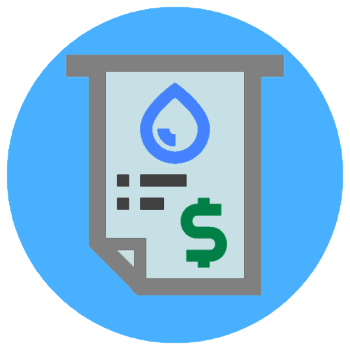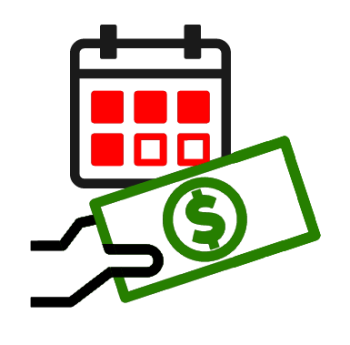At the start of the pandemic, there was uncertainty about how water and wastewater utilities’ revenues and finances might be affected. Many utilities and local governments were concerned with loss of revenue from the commercial sector, as well as the financial implications of statewide moratoria on late fees and disconnections for non-payments designed to ensure that everyone has adequate access to water and sanitation during a designated public health emergency. Various polls and case studies were analyzed to gauge early and ongoing effects on the utilities’ financial condition. Now, the release of audited data in local governments’ annual financial statements provides additional information and insights. This blog post summarizes how over 300 local government water and wastewater utilities in North Carolina fared at the end of Fiscal Year 2020 (end of June 2020 for all local governments in the state) compared to previous years. The audited data include the first three months of the pandemic.
Tag: days cash on hand
Written by Stephen Lapp
At the Environmental Finance Center at UNC-Chapel Hill, we are always communicating that how you pay for it matters, but could how often you pay for it matter as well? It may seem counter-intuitive to think that receiving bills more regularly would be positive, but there are many reasons why utilities have trended towards monthly billing and away from bi-monthly, quarterly, semi-annually, or even annual billing. From FY2007 to FY2019, there has been an 8% increase in utilities that bill monthly in North Carolina, all of which switched from less frequent billing. Here are some reasons that water utilities are trending towards more frequent billing patterns: Continue reading
Local governments have an increased public health responsibility to ensure that people have access to clean water during the COVID-19 pandemic. During this time, many utilities are refraining from shutting off customers’ water, despite unpaid bills. In more than a dozen states, mandates have even been put in place to prevent utility service shut-offs for customers. While it is a common practice during the crisis, utilities lose a tool to ensure collections from customers. Furthermore, many utilities will experience significant declines in water use from non-residential customers. The reduction in revenue could put utilities in a difficult financial position.
Many utilities may not be able to generate the revenues needed to cover their expenses this year. In that case, utilities may have to rely on their reserves to cover the gap. How long will utilities be able to last during this pandemic without recovering all of their expenses through revenues? This leads us to analyze a key financial indicator that approximates unrestricted reserves: days cash on hand. To put it simply, days cash on hand is the amount of saved and unrestricted cash a system has and how long it will be able to pay for daily operations before it runs out. For additional information on days cash on hand see our previous blog post.
At this point, it is unknown how long utilities might expect to operate under current COVID-19 conditions, which dictates how much they will need to rely on their reserves. According to Washington Post’s William Wan, it was two and a half months from the time of outbreak before COVID-19 peaked in China and restrictions began to lift. Given the uncertainty, it is important to examine the financial sustainability of utilities at various lengths of time. Here we will be analyzing the impact of the virus shutdown continuing for two, three, and four months. Additionally, we will compare present regional differences between utilities in North Carolina and Arizona. Continue reading





